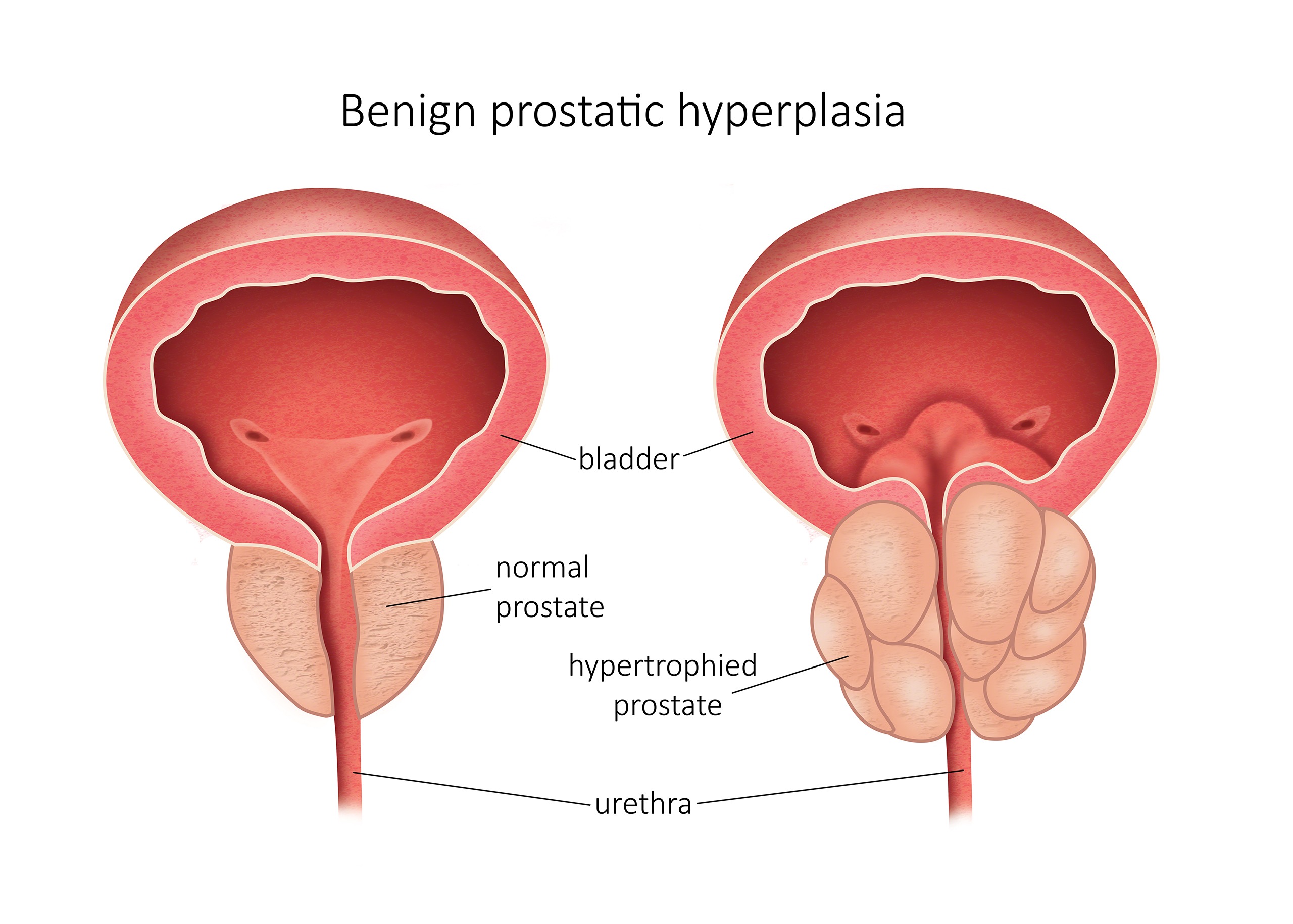What is Benign Prostatic Hyperplasia?
The benign prostatic hyperplasia is characterized by an expansion in size of the prostate due to increased cell growth (hyperplasia). Most growing cells are located in the transitional zone of the prostate, found in the inner part of the prostate. As we age, especially after age 50, the prostate naturally becomes larger following testosterone. Almost all men have a prostate larger at the age of 70. BPH does not increase the risk of developing prostate cancer.

What are the signs and symptoms?
There are no signs and symptoms in the early stages of BPH. They appear when the prostate begins to compress the urethra like a donut hole becomes smaller. It then causes changes in urination:
- difficulty urinating
- more frequent urination during the day, especially at night
- weak or slow urine stream
- inability to empty the bladder completely
- urinary stream that stops and resumes
- drip at the end of urination
- reluctance to begin urination
- urinary retention
How to diagnose Benign Prostatic Hyperplasia?
If there are BPH signs and symptoms manifestations and they become bothersome, the doctor will analyze or examinate in order to diagnose. These may include the following:
We use these analyzes and tests to confirm a diagnosis of BPH. They are also used to rule out other problems such as urinary tract infection or a prostate cancer. They also verify the presence of any complication related to BPH.
- medical history and physical examination (rectal examination (DRE), questionnaire to assess the severity of bladder disorders and how they affect human quality of lifeurine studies)
- urine analyzes (urine flow measurement (urodébitmétrie), keeping a voiding diary on several 24-hour periods)
- Blood tests (antigène prostatique spécifique (APS), blood urea nitrogen, creatinine)
- imagery (kidneys, bladder and prostate ultrasonography, post voiding bladder ultrasound to determine the amount of urine left in the bladder after urination (residual urine))
- endoscopy (cystoscopy)
- biopsy guided by transrectal ultrasound
We use these analyzes and tests to confirm a diagnosis of BPH. They are also used to rule out other problems such as urinary tract infection or a prostate cancer. They also verify the presence of any complication related to BPH.


